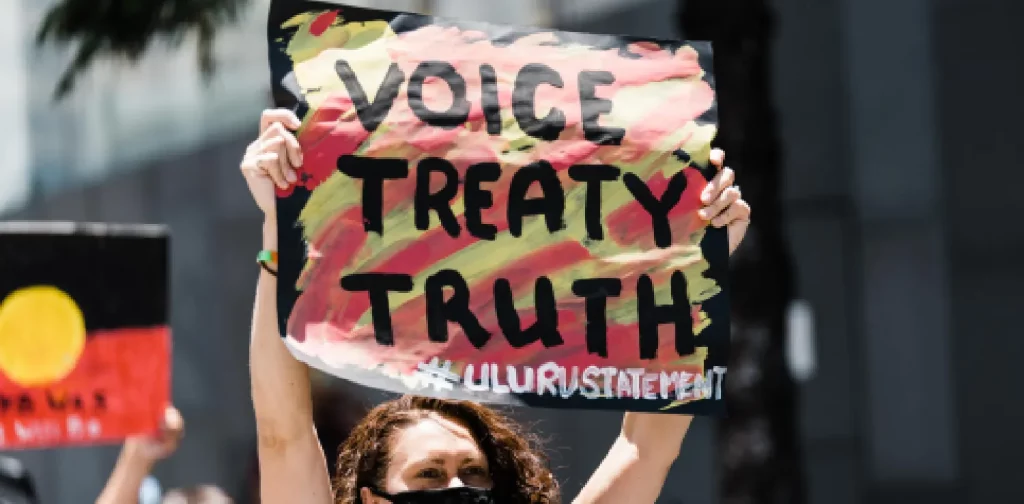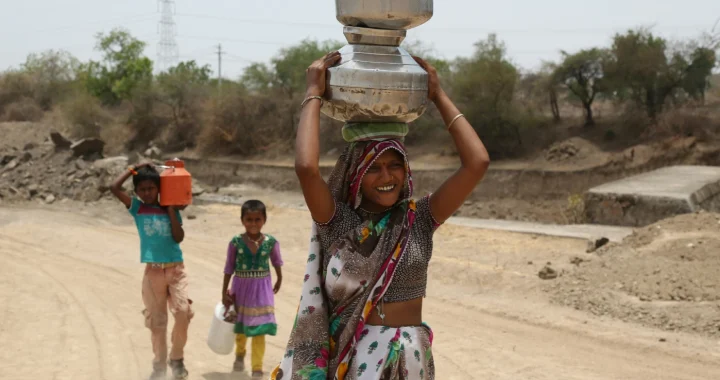Australia Rejected the Recognition of Indigenous Australians in the Constitution

Invasion Day Rally 2021. | Photo: Stewart Munro on Unsplash.
The Indigenous people of Australia have lived on the continent for at least 65,000 years. Despite their long history and strong ties to the land, the rights and recognition of Aboriginal and Torres Strait Island people remain lacking. On October 14, Australia rejected a referendum proposal to recognize Indigenous Australians in the constitution and bring their voice to the government.
Indigenous Australians and Discrimination
Indigenous Australians are commonly known as Aboriginal Australians, First Nations people, or First Peoples. The Indigenous peoples of Australia are the Aboriginal and Torres Strait Island people, making up about 3.8% of the Australian population. Despite the relatively small percentage, they are culturally rich, having 250 distinct language groups across the continent.
However, Indigenous Australians are the most disadvantaged people in the country by most legal and socio-economic measures. Australia never made a treaty with its First People. Aboriginal Australians and Torres Strait Islanders had only started to be legally recognized as part of the population after a vote in 1967.
Today, they still face various systemic discriminations due to colonialism legacies. For instance, many have trouble securing housing, resulting in a disproportionate amount of them being homeless or living in overcrowded social housing. Indigenous Australians also face inordinately high rates of incarceration.
Rejected Referendum
Most recently, the majority of Australians voted “No” to a referendum to recognize Indigenous Australians in the constitution. This referendum would have also created an Indigenous advisory body, the “Voice to Parliament”. Proposed in the Uluru Statement from the Heart, it was supposed to be a purely consultative body that would advise the parliament on Indigenous affairs.
With almost 70% of the votes counted, 61% of them said “No”. Overall, five out of six states voted “No”.
Those who opposed the referendum insisted the change would be divisive, ineffective, and slow down government decision-making. Before the vote, there was a misinformation campaign that claimed the Voice would become a third chamber of the parliament, giving more federal funding to Aboriginal Australians and Torres Strait Islanders.
Road to Reconciliation
In 2009, Australia endorsed the UN Declaration on the Rights of Indigenous Peoples, which recognizes Indigenous peoples’ rights to participate in decision-making and consult governments in matters that may affect them. Those points would have been realized through the proposed Voice to Parliament.
Despite this major setback and blow for the Indigenous communities, Prime Minister Anthony Albanese still has hope. He said, “Tonight is not the end of the road and is certainly not the end of our efforts to bring people together.”
Indigenous peoples deserve to have their rights fulfilled as human beings. Additionally, protecting their rights and supporting them would also bring positive impacts to sustainable development.
“While this particular referendum may have failed, the issues that it sought to address will not fade. Realizing rights to equality, to self-determination and participation of Indigenous Peoples in decisions that affect them, including through their self-governing bodies, remains central to Australia’s future – and is reinforced by Australia’s international human rights obligations,” said UN High Commissioner for Human Rights Volker Türk.

Co-create positive impact for people and the planet.
Amidst today’s increasingly complex global challenges, equipping yourself, team, and communities with interdisciplinary and cross-sectoral insights on sustainability-related issues and sustainable development is no longer optional — it is a strategic necessity to stay ahead and stay relevant.

Nazalea Kusuma
Naz is the Manager of International Digital Publications at Green Network Asia. She is an experienced and passionate writer, editor, proofreader, translator, and creative designer with over a decade of portfolio. Her history of living in multiple areas across Southeast Asia and studying Urban and Regional Planning exposed her to diverse peoples and cultures, enriching her perspectives and sharpening her intersectionality mindset in her storytelling and advocacy on sustainability-related issues and sustainable development.


 Embracing the Business Value of Sustainability
Embracing the Business Value of Sustainability  American Farmers Call for Government Support Amidst PFAS Contamination
American Farmers Call for Government Support Amidst PFAS Contamination  Asia Pacific’s SDG Progress Faces Major Setbacks
Asia Pacific’s SDG Progress Faces Major Setbacks  Exploring the Bidirectional Relationship Between Olympic Games and the Environment
Exploring the Bidirectional Relationship Between Olympic Games and the Environment  The Hidden Threat of Tire Pollution to Salmon Populations
The Hidden Threat of Tire Pollution to Salmon Populations  Understanding the Climate-Care Nexus
Understanding the Climate-Care Nexus